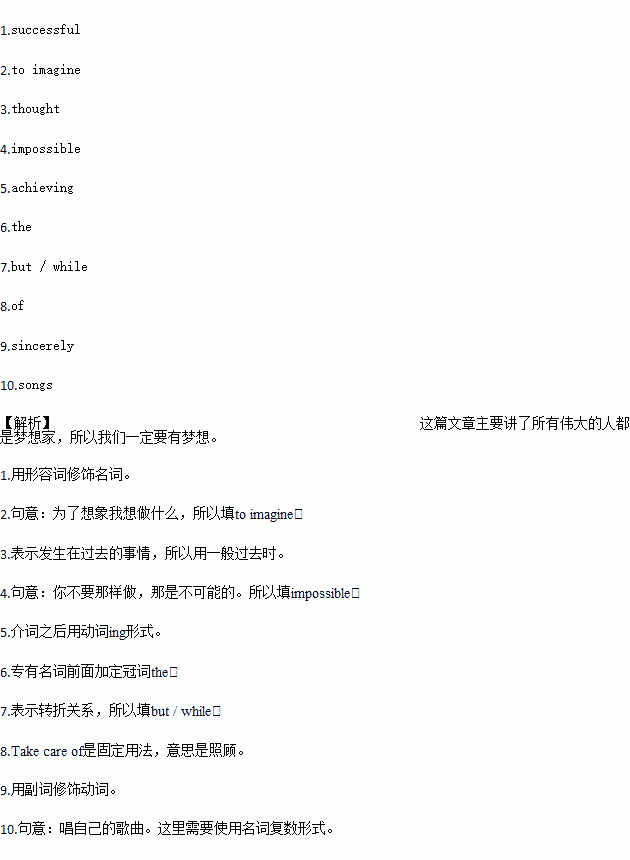题目内容
The question was once asked of a 1. (success) businessman, “How have you done so much in your lifetime?” lie replied, “I have dreamed. I have turned my mind loose 2. (imagine) what I wanted to do. Then I went to bed and 3. (think) about my dreams. In the night I dreamed about my dreams. And when I awoke in the morning, I saw the way to make my dreams real. While other people were saying, ‘You can’t do that, and it is 4. (passible).’ I was well on my way to 5. (achieve) what I wanted, as Woodrow Wilson, the 28th President of 6. US said: ‘We grow great by dreams,’”
All big men are dreamers. Some of us let these dreams die, 7. others protect them and take care 8. them through bad days until they bring them to the sunshine and light which comes always to those who 9. (sincere) hope that their dreams will come true. So please, don’t let anyone steal your dreams, or try to tell you they are too unrealistic. “Sing your 10. (song), and dream your dreams, hope your hope and pray your prayer.”

